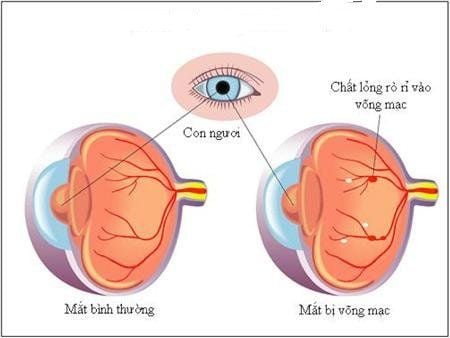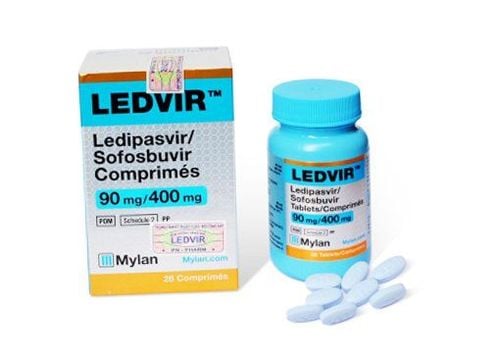This is an automatically translated article.
The article was professionally consulted by MSc Vu Thi Duyen - Doctor of Nephrology - Endocrinology, Department of Medical Examination & Internal Medicine - Vinmec Hai Phong International General HospitalNeurological complications are relatively common in patients with diabetes, especially in patients with poor glycemic control. The disease is rarely fatal but is the leading cause of leg amputation in patients with diabetes. Therefore, patients need to be very careful with this complication.
1. What are diabetic neuropathy?
Diabetic neuropathy is damage to the nerves that occurs as a result of prolonged and high blood sugar. Every nerve fiber throughout the body is at risk of being affected. However, the most obvious manifestations are usually in the nerves of the upper and lower extremities (currently peripheral neuropathy is more common).
Diabetic neuropathy is usually divided into two main groups, corresponding to the symptoms:
Peripheral neuropathy: Affects nerves on the periphery of the body presenting as neuropathy in the hands, feet, cranial nerves. Patients with numbness in the limbs, needles and ants crawling greatly affect the quality of daily life, especially sleep. Autonomic complications: Affects the nervous system beyond the control of active consciousness, which controls the activities of internal organs such as the stomach, intestines, cardiovascular, especially the urinary system. urinary incontinence).

2. What causes diabetic neuropathy?
Microscopic damage to the nerves and blood vessels supplying the nerves is a key factor in this type of diabetic complication.If blood sugar levels are too poorly controlled for a long time, the hypertonic environment caused by high blood glucose damages the nerve sheath, reducing nerve conduction velocity. At the same time, the small blood vessels that feed the nerves are also subject to the vascular complications of diabetes. They reduce the function of supplying oxygen and nutrients to the nerves, in the long run the nerve fibers also wear out.
In addition, there are many other hypotheses that also contribute to nerve damage in diabetic patients such as inflammation in the nerves due to increased autoimmune responses in diabetics, genetic factors, factors such as smoking, alcoholism...
Besides, many observations on a large number of patients have noted that the longer the duration of diabetes, especially when blood glucose does not reach the target, the more increased risk of neurological disease. The group of people with the disease for 25 years or more showed a very high rate of neurological complications. At the same time, chronic kidney disease is also one of the common complications of diabetes. At that time, kidney function is impaired, many cases require renal replacement therapy because toxins, products of increased metabolism in the blood can further damage nerves.
Trắc nghiệm dành riêng cho người mắc đái tháo đường: Chế độ ăn của bạn đã hợp lý chưa?
Người bị bệnh đái tháo đường cần phải quan tâm nhiều hơn đến cách tính toán khẩu phần ăn sao cho phù hợp với nhu cầu và tình trạng sức khỏe. Nếu chưa rõ, bạn có thể tìm hiểu kỹ hơn thông qua bài trắc nghiệm ngắn sau đây.3. How do diabetic neuropathy manifest?
Symptoms of diabetic neuropathy are diverse, and vary depending on the organ affected. Often, symptoms are also very mild, so the patient may not be concerned until the doctor sees or severe damage has appeared.Manifestations of diabetic neuropathy are divided according to the group of nerves affected as follows:
3.1. Peripheral neuropathy This is the most common presentation, and the bilateral feet are the first places of symptoms. Then, the symptoms will spread to the legs or appear more in the hands. Symptoms are usually bilaterally symmetrical. Patients often feel:
Numbness, decreased perception of pain, heat and cold, especially in the feet. Patients often fall off their shoes, step on sharp objects, and get injured without even knowing it. A stinging, burning sensation. Pain is sharp, often increasing at night. Pain when walking. Sometimes the patient has symptoms of hyperesthesia: even a light touch the patient feels a lot of pain. Weakness and difficulty walking. Foot ulcers, infections, foot deformities, pain in bones and joints when the disease is advanced 3.2. Autonomic neuropathy

In the eyes: The pupils lose their reflexes to light, darkness, or glare. In the digestive system: The stomach contractions slow down, so the patient often feels full after eating; having a feeling of choking, difficulty swallowing, nausea, vomiting, loss of appetite; constipation or diarrhea, especially nocturnal diarrhea or constipation mixed with diarrhea. In the cardiovascular system: Tachycardia at rest, orthostatic hypotension (when changing positions from lying to sitting or standing suddenly, the patient feels dizzy, lightheaded, sometimes fainting due to low blood pressure) . At the same time, patients lose their sense of alarm when having low blood glucose such as hunger, sweating, fear, heart palpitations,...; therefore, if not promptly treated (eg eating, drinking sugar water), the patient can quickly go into a coma. In the urinary and genitourinary systems: Urine stagnation in the bladder (also known as neurogenic bladder) for a long time leads to urinary tract infections. Patients may also urinate more often, difficulty holding urine. Erectile dysfunction in men, decreased pleasure in women, vaginal dryness. In the skin: Increased or decreased sweating, temperature regulation disorders, erratic heat and cold. 3.3. Other Nerve Damage Rare cases are neurologic complications involving only one nerve, causing mononeuropathy (also called focal neuropathy) with common symptoms of diplopia, pain behind the eye if the oculomotor nerve is damaged; facial paralysis, mouth distortion, difficulty speaking due to damage to the facial nerve on one side; pain in the legs, feet, pain in the front of the thighs, pain in the chest, pain in the abdomen, ... when the corresponding sensory fibers are damaged.
If diabetic neuropathy affects both nerves and nerve roots, it shows plexus - nerve root disease. This complication is common in older adults with type 2 diabetes and symptoms are usually unilateral or sometimes bilateral, with lesions in the thighs, hips, buttocks, and legs. Patients with severe pain appear suddenly in the thighs, abdomen, thigh muscles are weak and atrophied, difficult to change position from sitting to standing,...

4. Treatment and prevention of diabetic neuropathy
Currently, there is no cure for diabetic neuropathy and its neurological complications. Accordingly, the main treatment is good control of blood sugar to help slow the progression of the disease. In addition, if the expression is too uncomfortable and affects the quality of life, the patient is indicated to use neuropathic pain medication as well as symptomatic treatment and rehabilitation.Prevention is always a top priority, applied to diabetics and normal people who have never had the disease.
For patients with diabetes, it is necessary to strictly follow a specific diet and exercise; course of treatment, periodical re-examination; Exercise regularly to maintain an appropriate weight, stop smoking and limit alcohol. You should monitor your own blood pressure and blood sugar at home as well as recognize early signs of nerve damage, how to observe and take care of your feet carefully to avoid ulcers, and not aggravate foot deformities. legs already. For normal people, it is necessary to have regular health check-ups and general tests to help detect and treat diabetes early, to prevent neurological complications in particular and other complications of diabetes. cardiovascular problems in general.
Please dial HOTLINE for more information or register for an appointment HERE. Download MyVinmec app to make appointments faster and to manage your bookings easily.














